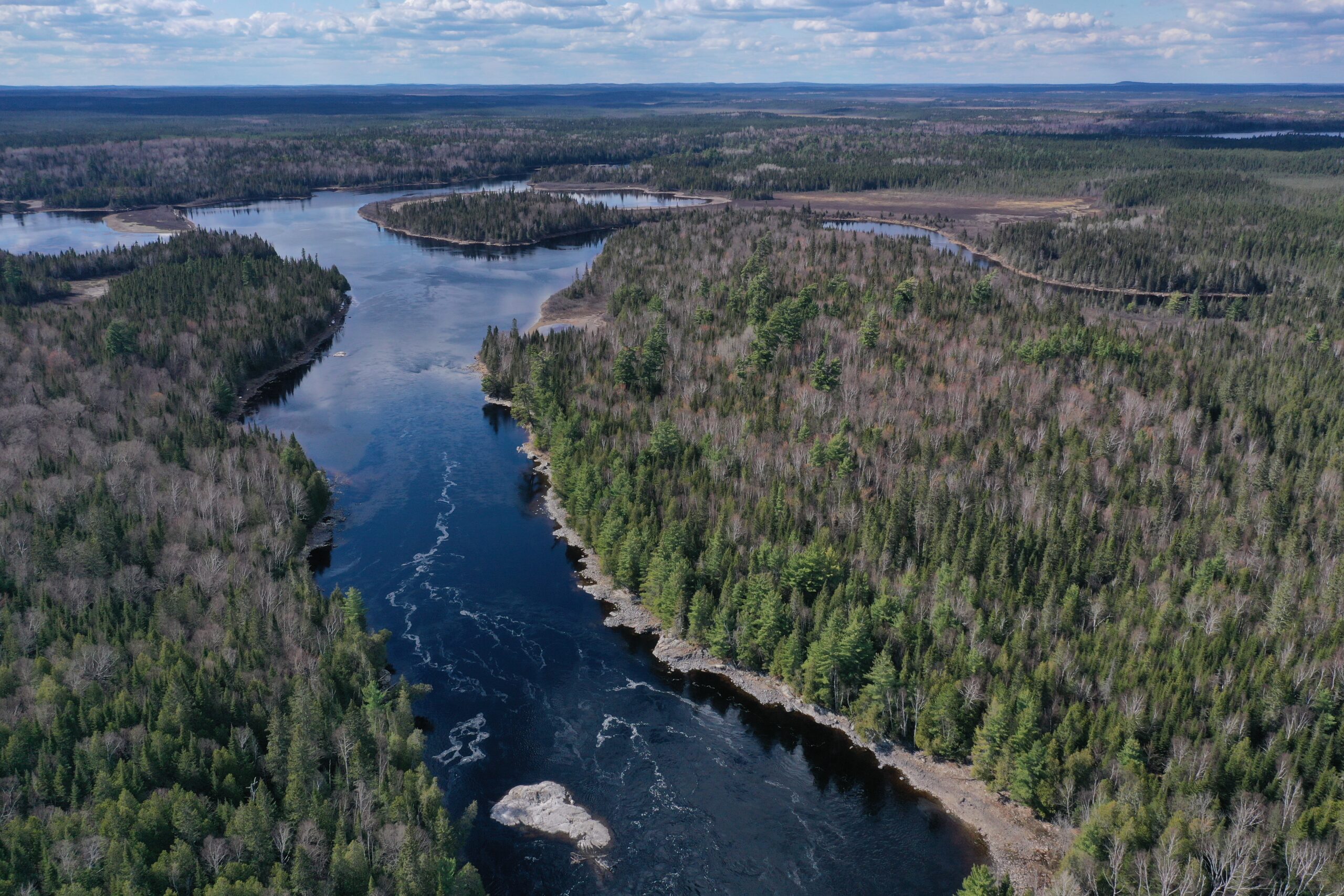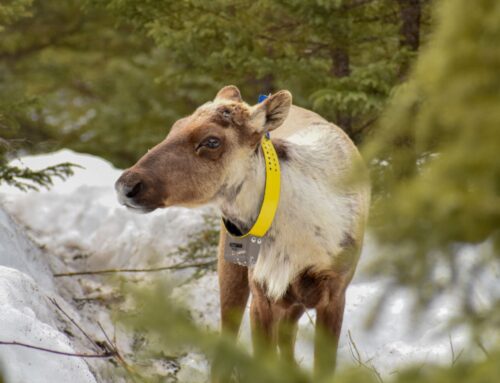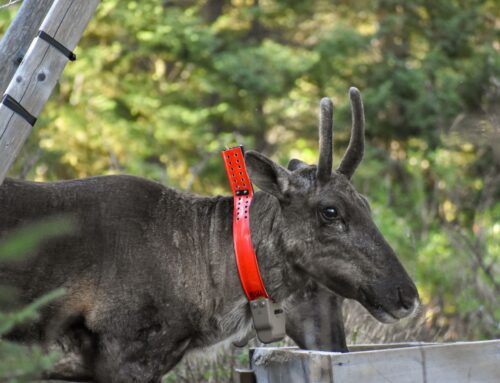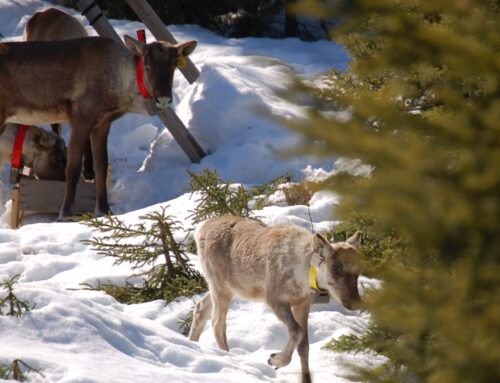Until the last minute, the Quebec Ministry of Forests tried to block the creation of many of the protected areas announced in December by the Ministry of the Environment. This is what documents obtained by La Presse reveal, despite the objections of the Ministry of Forests to their disclosure.
Published on May 28, 2021
Source: Jean-Thomas Léveillé, La Presse
Attempts to backtrack on long-standing gains, assertions that are not supported by evidence, answers that are delayed for months … The recent creation of new protected areas by Quebec has not been easy.
Emails from senior officials at the Ministry of the Environment and the Fight against Climate Change (MELCC) shed new light on the obstruction of the Ministry of Forests, Wildlife and Parks (MFFP) denounced in recent months by dozens of scientists and ten environmental organizations.
The exchanges, sometimes acrimonious in tone, show the exasperation of MELCC officials with their MFFP interlocutors, who want to preserve the “allowable cut”, the volume of wood that the industry can harvest.
La Presse obtained about 20 emails and documents exchanged between these two ministries during the three and a half months that preceded the December 17 announcement of the creation of new protected areas that allowed Quebec to respect in extremis its commitment to protect 17% of its territory before the end of 2020.
Backtracking on achievements
Deputy Minister Marc Croteau of the MELCC wrote to his counterparts at the MFFP and the Ministère de l’Énergie et des Ressources naturelles (MERN) on August 17, reminding them that there is a consensus on the territories to be protected in order to reach a threshold of 16%, but that there is still a 1% shortfall to reach the target of 17% before the end of the year, which is about 16,000 km2.
“I’m counting on your cooperation to make this a success,” he concludes, but things will quickly fall apart.
The MELCC took offense in an e-mail on November 18 to see the MFFP oppose the protection of sectors for which it had already given its agreement.
“I must say that questioning 3.376% of territories agreed upon between our organizations and the regional community for sometimes close to 10 years, at this point, seems risky to me,” wrote the assistant deputy minister for sustainable development and environmental quality, Jacob Martin-Malus, to the MFFP’s director general of strategic mandates, Steeve Audet.
Manouane-Manicouagan had been announced with the MFFP in 2017. […] Your predecessor was even with us in Baie-Comeau for the announcement.
-Excerpt from an email from Jacob Martin-Malus, Assistant Deputy Minister at MELCC, to Steeve Audet, MFFP
This 2377 km2 area located on the North Shore and in the Saguenay-Lac-Saint-Jean region, which aims to protect the woodland caribou, has finally been designated as a “territory reserve for the purposes of a protected area”.
MFFP claims questioned
Senior MELCC officials also have doubts about the statements of their counterparts at the MFFP, redacted in the documents sent to La Presse.
“I question the data transmitted to the Prime Minister’s Office by the MFFP,” wrote Jacob Martin-Malus to Steeve Audet on November 18, asking him for “the data, explanation and analysis supporting the figures” he put forward in his message.
“There does not seem to be any obligation in the current process for the MFFP to provide evidence to refuse the realization of certain protected area projects,” concludes the Société pour la nature et les parcs (SNAP Québec), to whom La Presse had the documents read.
A “more solid, more transparent and better supervised process” is needed, the organization says.
The Prime Minister gets involved
Premier François Legault’s office apparently intervened to get the MFFP moving two weeks before the announcement of the new protected areas, an email from Jacob Martin-Malus reveals.
“The PM cab seems to have asked the MCE [ministère du Conseil exécutif] to intervene with the MFFP to move things forward,” he wrote on December 2 to his superior, Deputy Minister Marc Croteau, as well as to colleagues in his department.
At the same time, he deplored the fact that he had not received satisfactory answers from the MFFP to various questions.
“I asked my DG to call their DG to try to understand their email, [the rest of the sentence is redacted]. I’ll get back to you if we can decode something we can work on,” he writes, adding that “MERN is in the same place as MELCC.”
Later the same day, he wrote to Steeve Audet of the MFFP: “We don’t know what to do with your answer Steeve. […] It’s as if we went back three weeks. ”
Nearly two years without a response
The designation of protected areas is sometimes slowed down by the lack of response from the ministries concerned by the projects piloted by the MELCC.
This is the case, for example, of a 246 km2 sector around the Péribonka River in Lac-Saint-Jean, which would also protect woodland caribou.
The MELCC’s request for advice, submitted in December 2018, was still without a response from the MFFP and MERN in August 2020, says a document listing 143 territories of interest for the creation of protected areas, 24 of which have not received official advice from the MFFP or MERN.
Since these notices are necessary for the process to proceed, not providing them gives “a form of veto power” to the MFFP and the MERN, says Alain Branchaud, CPAWS Quebec’s executive director.
The MFFP has implemented a strategy to slow down [the process] and interfere with the achievement of the government objective.
Alain Branchaud, Executive Director of CPAWS Quebec
The Péribonka River protected area project was not included in the government announcement.
The “bad player
The documents obtained by La Presse confirm that the MFFP is going against the government’s will to protect the territory, believes Alain Branchaud.
“The most surprising thing for us is the confirmation of the interference of the MFFP,” he says.
The creation of protected areas is “not a will of the Ministry of the Environment, it is a will of the Quebec government”, reminds the biologist, surprised that a ministry puts “obstacles in the wheels” of its own government.
You have a player who doesn’t want to play for the team he’s on.
On the other hand, Energy and Natural Resources Minister “Jonatan Julien and his team have been good participants and have helped break some of the logjams,” Branchaud said, based on “feedback” he has received.
In November, while talks between the ministries were underway, 10 environmental organizations, including Nature Québec, the David Suzuki Foundation, CPAWS, Greenpeace and Action Boréale, denounced the MFFP’s “obstruction” of efforts to reach the 17% protected area target, accusing it of becoming the ministry of the “forest industry.
More recently, nearly 70 Quebec scientists signed an open letter in March in which they noted that “it still appears difficult for the MFFP, almost 20 years after the Coulombe Commission’s warnings, to reconcile its economic development vocation with that of good stewardship of public forests.
The office of the Minister of Forests, Wildlife and Parks, Pierre Dufour, did not wish to comment; that of the Minister of the Environment and the Fight against Climate Change, Benoit Charette, did not respond to messages from La Presse.
With the collaboration of William Leclerc, La Presse
DOCUMENTS PROVIDED BY MELCC, BUT REFUSED BY MFFP
On March 8, La Presse simultaneously asked the MELCC and the MFFP for a copy of their exchanges over the past three years concerning the creation of protected areas. On May 17, the MELCC provided the twenty or so documents mentioned in this report, but the passages from the MFFP are redacted, since they come from another organization. Instead, the MFFP asked the Commission d’accès à l’information du Québec for permission not to respond to La Presse’s request, stating that it was “manifestly abusive and [that] its treatment is likely to seriously harm [its] activities. La Presse submitted a new request to obtain only the exchanges that took place between October 1 and December 17, but the MFFP again refused to disclose the requested documents.
QS CALLS FOR THE ABOLITION OF THE MINISTRY OF FORESTS
Faced with the “numerous problems that plague the Ministry of Forests, Wildlife and Parks (MFFP)”, Québec solidaire (QS) called for its complete abolition in a press release issued Thursday. “The current management of the Minister [Pierre Dufour] has disastrous consequences on the conservation of natural environments. By focusing his policies on the monetized aspect of his ministry, Pierre Dufour is jeopardizing entire natural habitats,” deplores Émilise Lessard-Therrien, QS spokesperson on forests, wildlife and parks. Here, she refers to Bill 88, called to reform the Law on Wildlife Conservation, which would allow the destruction of wildlife habitats in exchange for financial compensation. The Solidarity MP proposes to redistribute the MFFP files between the Ministry of Energy and Natural Resources and the Ministry of the Environment. “The Ministry of the Environment must have the freedom to play its role as a biodiversity watchdog,” Lessard-Therrien said. With 340 wildlife officers throughout Quebec, the party is also calling for more staff and professionals in the field to enforce regulations and monitor the status of species.
Léa Carrier, La Presse
PROTECTED AREAS IN NUMBERS
34
Number of “land reserves for protected areas” that were finally added after negotiations between MELCC, MFFP and MERN
12,647 km2
Area of additional land that will become protected areas
96,000 km2
Total area of Quebec territory to be protected
30 %
New protection target of the Convention on Biological Diversity for 2030





